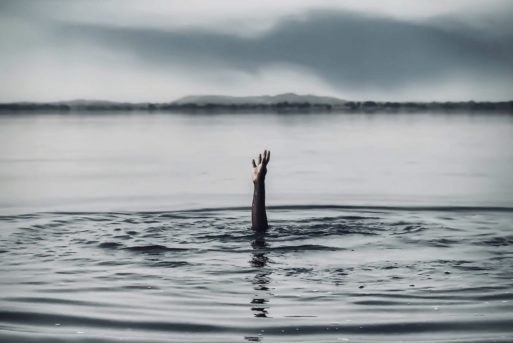
Empty-handed I entered the world
Barefoot I leave it.
My coming, my going —
Two simple happenings
That got entangled.
This untitled poem by Kozan Ichikyo, written in 1360, represents a genre known as “jisei” or Japanese death poems, once common among Zen monks and poets in Japan and China. The poems, which typically appeared in the form of a “haiku” (with lines patterned in syllables of 5-7-5), or a “tanka” (5-7-5-7-7), were written in the final moments of its authors’ life.
“A few days before his death” at age 77, according to Yoel Hoffman, author of Japanese Death Poems: Written by Zen Monks and Haiku Poets on the Verge of Death, Ichikyo “called his pupils together, ordered them to bury him without ceremony, and forbade them to hold services in his memory. He wrote this poem on the morning of his death, laid down his brush, and died sitting upright.”
Death poems can often be found in Japanese text, history or folklore
Hoffman, who ties the Japanese art form to a culturally calmer approach to death, noted that death poems are found throughout ancient Japanese texts, including the “Kojiki”— the country’s first historical record — and the “Man’yoshu,” its first poetry anthology. Warriors and samurai penned death poems, such as this one attributed to Minamoto-no-Tomoyuki, a hero who was executed in an anthology of adventure tales called the “Taiheiki:”
For two and forty years
I wavered between life and death.
Now hills and rivers overturn.
The earth and sky return to nothingness.
Japanese history and folklore also contain numerous references to lovers’ suicides — featuring women, and sometimes men, who, overcome by emotion, commit suicide in the manner of a Shakespearean tragedy.

Credit: Ayyub Jauro
According to one story, a geisha named Uneme wrote this Japanese death poem before throwing herself into a lake because she was forbidden from seeing her lover, a Buddhist monk, who had also committed suicide:
If you know not
who I am, hear:
Like the one who cast herself
into the Lake of Monkeys
I drown myself in Mirror Lake.
In Zen Buddhism, monks were often believed to have chosen death voluntarily, or to intuit its approach. Often, they were said to have died — like Ichikyo — in an upright position, either sitting or standing; an indication of enlightenment.
Regardless, all authors of Japanese death poems — like Ichikyo — entered the world empty-handed, and left it barefoot. Perhaps, in whatever time is granted between, the most we can strive to do is untangle.

 “An Untitled Japanese Death Poem” by Kozan Ichikyo
“An Untitled Japanese Death Poem” by Kozan Ichikyo


 John Mulaney’s “Funeral Planning” on Netflix: No Real Plan
John Mulaney’s “Funeral Planning” on Netflix: No Real Plan

 Composting Bodies Is Now Legal in a Dozen States
Composting Bodies Is Now Legal in a Dozen States














